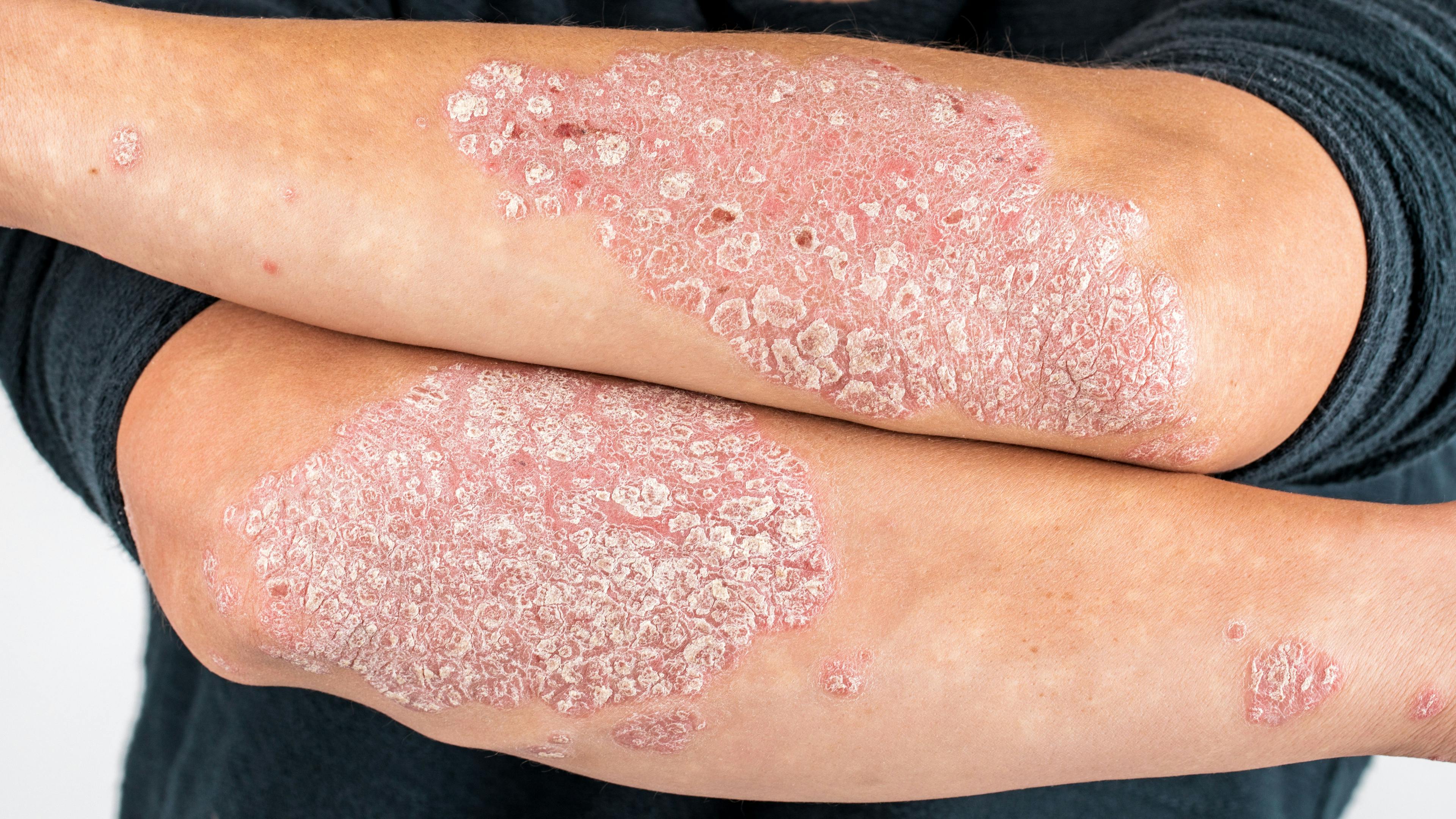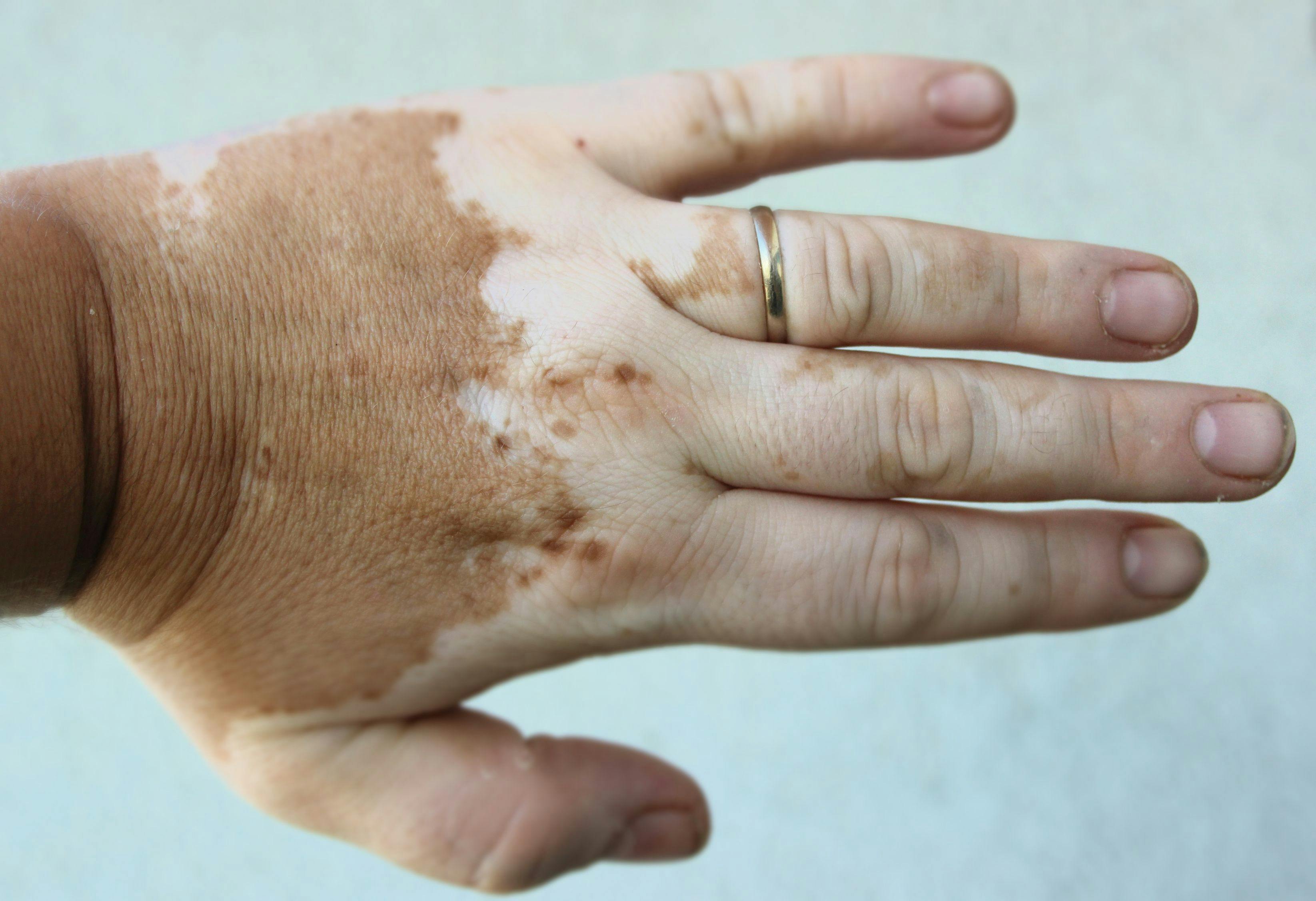- Acne
- Actinic Keratosis
- Aesthetics
- Alopecia
- Atopic Dermatitis
- Buy-and-Bill
- COVID-19
- Case-Based Roundtable
- Chronic Hand Eczema
- Chronic Spontaneous Urticaria
- Drug Watch
- Eczema
- General Dermatology
- Hidradenitis Suppurativa
- Melasma
- NP and PA
- Pediatric Dermatology
- Pigmentary Disorders
- Practice Management
- Precision Medicine and Biologics
- Prurigo Nodularis
- Psoriasis
- Psoriatic Arthritis
- Rare Disease
- Rosacea
- Skin Cancer
- Vitiligo
- Wound Care
Publication
Article
Dermatology Times
Exploring the Connection Between IBD and Psoriasis
Author(s):
The long-believed causal association between inflammatory bowel disease and both psoriasis and psoriatic arthritis has been recently confirmed.
A recent study1 has confirmed long-held suspicions that inflammatory bowel disease (IBD), particularly Crohn's disease, is a causal risk factor for psoriasis and psoriatic arthritis. This knowledge can be very useful and help clinicians optimize the treatment and management of patients with these conditions, ideally in a multidisciplinary setting.
Psoriasis and IBD (including ulcerative colitis and Crohn's disease) are chronic and systemic immune-mediated inflammatory conditions with a lifelong relapsing-remitting course. They share immune dysregulation in pathogenesis, determined by genetic predisposition and environmental factors. Although novel therapies targeting pathways and proinflammatory cytokines like IL-23 and IL-17 have proven useful, many unanswered questions still remain with respect to optimal treatment for these separate yet overlapping diseases.
Researchers recently conducted a study to investigate the association between IBD, particularly ulcerative colitis and Crohn's disease, and psoriasis and psoriatic arthritis. The bidirectional 2-sample Mendelian randomization study was performed using statistics obtained from genome-wide association studies that included 463,372 European individuals.
In the study cohort, data showed that 12,822 individuals had IBD and 5621 had psoriasis, with the proportion of women ranging between 48% and 56%. The researchers found that genetically predicted IBD was associated with a higher risk for psoriasis and psoriatic arthritis, particularly in those with Crohn's disease. Interestingly, it was found that psoriasis and psoriatic arthritis have no causal effect on IBD.
Irrespective of the direction of disease progression, therapy remains challenging for patients with IBD, psoriasis, and psoriatic arthritis. Biologics like the IL-17 inhibitors have proved to be safe and highly useful in psoriasis and psoriatic arthritis but less so in patients with IBD, with some reported cases of exacerbation or induction of IBD. Inflammatory bowel disease, particularly Crohn's disease, appears to be more common in patients with psoriasis. Nevertheless, it is still not known whether IL-17 inhibitors cause de novo IBD or whether reported cases of IBD in patients on IL-17 inhibitor therapy are due to background risk in this predisposed population, who may have already had a subclinical disease.
“One of the most important connections that clinicians frequently talk about is that between giving psoriasis patients IL-17 inhibitors and the incidence of them acquiring IBD. This very real association essentially questions whether this is a causal risk or…these…two underlying diseases…are connected and the drug either had nothing to do with it or maybe somehow triggered it,” explained Peter A. Lio, MD, clinical assistant professor of dermatology and pediatrics at Northwestern University Feinberg School of Medicine, in Chicago, Illinois.
Some clinicians believe that patients with IBD should not receive IL-17 inhibitor therapy, as it may cause a flare in psoriasis. According to Lio, however, this viewpoint remains controversial, and there are no current guidelines for such a scenario, leaving many unanswered questions for future studies to address.
“It’s interesting that the study found the one-directional trend of IBD going to psoriasis. In my experience, it is not unheard of that psoriasis patients without any bowel symptoms go on to develop bowel disease. Now, whether those patients already had bowel disease that was subclinical or there is a gap that clinicians may have overlooked remains to be explored,” Lio added.
In his opinion, patients with known IBD and psoriasis are perfect candidates for multidisciplinary treatment and management approach that would include gastroenterologists and dermatologists working together to optimize skin and bowel therapies.
“This multispecialty approach will likely impact the choice of medication because we know some drugs appear to be at higher risk of triggering a psoriatic flare. Nevertheless, the collaboration among specialties can prove useful in both better understanding these overlapping diseases and uncovering risk factors and other aspects of the diseases, which hopefully will lead to improved health outcomes,” Lio said.
Reference
- Freuer D, Linseisen J, Meisinger C. Association between inflammatory bowel disease and both psoriasis and psoriatic arthritis: a bidirectional 2-sample Mendelian randomization study. JAMA Dermatol. 2022;158(11):1262-1268. doi:10.1001/jamadermatol.2022.3682

Newsletter
Like what you’re reading? Subscribe to Dermatology Times for weekly updates on therapies, innovations, and real-world practice tips.






















